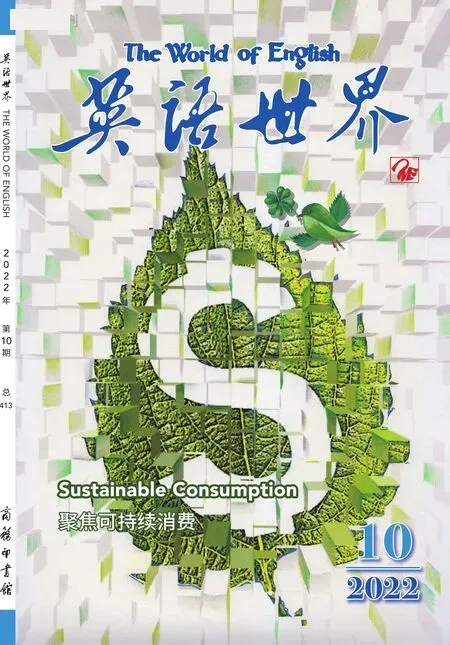《邻居罗西基》(节选二)
文/ 薇拉·凯瑟 译析/曹明伦
病人呵呵一笑。“家可不是男人待的地方。我不喜欢一个大男人整天就围着锅台转。说到我老伴儿,她自己也没少操劳。”
2“这就是了,你可以稍稍帮帮她呀。说真的,罗西基,在我认识的人当中,没几个能有你那样一个家,舒适温馨,和和睦睦,从不吵架,而且孩子们对你都好。我希望你多活几年,好好享享福。”
3“唉,这话不假。他们都是些好孩子。”罗西基赞同道。
4医生给他开了张处方,然后问起他大儿子鲁道夫的近况,因为鲁道夫春天刚结了婚,婚后便另立门户,租了块地自己耕种。“波莉还好吧?我开始还担心玛丽不喜欢有个美国媳妇呢,可现在看来似乎都挺好的。”
5“是呀,波莉是个好姑娘。她那个守寡的母亲把几个女儿都调教得挺懂事的。波莉有股子勇气,也有点时尚。这挺好,年轻人就该时尚点嘛。”罗西基豪爽地点了点头,说话的声音和眨眼微笑都充满了对他那个儿媳妇的喜爱和赞赏。
6“这天看上去像要下雪,你最好赶在雪下来之前回家。开车来的?”伯利医生边问边站起身来。
7“不,赶车来的。家里有了五个小伙子,坐那辆福特车兜风的机会也就少了。但我也不太喜欢汽车,真不喜欢。”
8“好吧,去你家的路还算好走,但我不希望你老在马车上颠来颠去。记住,别再干耙草的活儿了!”
9罗西基装出一副漫不经心的样子,一边眼望别处,一边小心地把诊费放到了桌上的电话机后面,然后戴上长毛绒帽子,穿上有羊皮领子的灯芯绒外套,出了诊所。
10医生皱起眉头盯着随手拿起的听诊器,仿佛是那个玩意儿惹得他不高兴。他真希望刚才谈论的是另一个人的心脏,那个人告别时不会用心照不宣的目光盯着他,也不会向他伸出一只黝黑而温暖的大手。在离开家乡去读医学院之前,伯利医生曾是个乡下穷孩子,他自打记事起就认识罗西基,而且对罗西基太太也怀有一份深情。
11就在上一个冬天,他在罗西基家吃过一顿香喷喷的早饭,而当时他正饥肠辘辘,因之前他在汤姆·马歇尔家忙碌了一整夜,为难产的马歇尔太太接生。马歇尔家有个富有的大农场,有满圈牲畜,有满仓粮食,还有许多价格不菲的新式农机具,可就是没有家的舒适温馨。马歇尔太太有太多的孩子,干太多的活儿,但她并不善于持家。当那个婴儿终于坠地,被来帮忙的女邻居接过手,母亲也受到适当处置之后,伯利医生拒绝了早餐,匆忙离开了那幢邋遢的房子。当晚雪太深,没法开车,他赶着马车走了八英里路,直奔安东·罗西基家。他从不曾见过另一户农家对客人的欢迎是那样热情,端上的奶油咖啡是那样浓香。难怪那老家伙不肯戒掉咖啡!
His patient chuckled.“It ain’t no place fur a man. I don’t like no old man hanging round the kitchen too much. An’ my wife, she’s a awful hard worker her own self.”
2“That’s it; you can help her a little.My Lord, Rosicky, you are one of the few men I know who has a family he can get some comfort out of; happy dispositions, never quarrel among themselves, and they treat you right. I want to see you live a few years and enjoy them.”
3“Oh, they’re good kids, all right,”Rosicky, assented.
4The Doctor wrote him a prescription and asked him how his oldest son, Rudolph, who had married in the spring,was getting on. Rudolph had struck out for himself, on rented land. “And how’s Polly? I was afraid Mary mightn’t like an American daughter-in-law, but it seems to be working out all right.”
5“Yes, she’s a fine girl. Dat widder woman bring her daughters up very nice. Polly got lots of spunk, an’ she got some style, too. Da’s nice, for young folks to have some style.” Rosicky inclined his head gallantly. His voice and his twinkly smile were an affectionate compliment to his daughter-in-law.
6“It looks like a storm, and you’d better be getting home before it comes.In town in the car?” Doctor Burleigh rose.
7“No, I’m in de wagon. When you got five boys, you ain’t got much chance to ride round in de Ford. I ain’t much for cars, noway.”
8“Well, it’s a good road out to your place; but I don’t want you bumping around in a wagon much. And never again on a hay-rake, remember!”
9Rosicky placed the Doctor’s fee delicately behind the desk-telephone,looking the other way, as if this were an absent-minded gesture. He put on his plush cap and his corduroy jacket with a sheepskin collar, and went out.
10The Doctor picked up his stethoscope and frowned at it as if he were seriously annoyed with the instrument. He wished it had been telling tales about some other man’s heart, some old man who didn’t look the Doctor in the eye so knowingly, or hold out such a warm brown hand when he said good-bye.Doctor Burleigh had been a poor boy in the country before he went away to medical school; he had known Rosicky almost ever since he could remember,and he had a deep affection for Mrs.Rosicky.
11Only last winter he had such a good breakfast at Rosicky’s, and that when he needed it. He had been out all night on a long, hard confinement case at Tom Marshall’s—a big rich farm where there was plenty of stock and plenty of feed and a great deal of expensive farm machinery of the newest model, and no comfort whatever. The woman had too many children and too much work,and she was no manager. When the baby was born at last, and handed over to the assisting neighbour woman, and the mother was properly attended to,Burleigh refused any breakfast in that slovenly house, and drove his buggy—the snow was too deep for a car—eight miles to Anton Rosicky’s place. He didn’t know another farm-house where a man could get such a warm welcome,and such good strong coffee with rich cream. No wonder the old chap didn’t want to give up his coffee!
【背景知识】《邻居罗西基》是美国女作家薇拉·凯瑟(1873—1947)于1930 年发表的一篇重要短篇小说。小说通过回忆和追述的手法,讲述了波希米亚移民罗西基朴素而充实的一生,展现了拓荒者及其后代善良、朴素、勤劳、热爱生活、眷念土地的可贵品质。小说主题深刻,结构匀称,笔触细腻,文字优美,人物性格刻画清晰,翻译时应注意描摹。
【第1 段】ain’t = isn’t,fur = for,An’ = And, a awful = an awful。不规范英语中的双重否定仍然表示否定,甚至是加强否定,如福克纳的短篇小说Dry September中就有“I aint done nothing”(我什么也没干)这类表达。本段中的It ain’t no 和I don’t like no 就属于这种情况。
【第2—3 段】My Lord 在句中已失去其作尊称语(阁下,大人)的本义,此处的作用是加强语气。把医生口中的they 翻译成“孩子们”也是结合语境的代词还原。
【第4 段】由who 引导的定语从句补充说明原因(为何单问鲁道夫的情况),故译文有“因为”二字。第一代移民在身份认同上多不把自己看成美国人,故有“美国媳妇”之说。
【第5 段】Dat widder = That widow,an’ = and,Da’s = That’s。twinkly = twinkling (见Webster’s Third New International Dictionary of the English Language)。twinkly smile(眨眼微笑)是罗西基个性化的表情,后文也描写他smiled his twinkling smile(眨巴着眼睛微笑)。
【第6—7 段】storm 可指雨、雪、冰雹等,翻译时应根据语境选择义项(后文讲罗西基离开诊所后不久天开始下雪)。 de = the,I ain’t = I am not。
【第8—9 段】Well 作为感叹词,译者可根据语境选用适当的对应语。译文将第9 段原文两句并作一句,是因为原文两句的主语指同一个人,省掉一个主语,译文句子更为清爽。
【第10 段】比较一种形式上更接近原文第一句的译法(医生拿起他的听诊器,并朝它皱起眉头,仿佛他被那个器械惹得十分烦恼),想想译者为何不选择“更忠实”的译文。
【第11 段】last winter 指the most recent winter(上一个冬天,最近那个冬天)。小说后文告诉我们,医生想到last winter 是在当年下第一场雪的那天,可小说并未交代是初冬还是暮冬,所以此处的last winter 宜译成“上一个冬天”,最好不冒险译成“去年冬天”。
【小结】讲故事总有起承转合。有的故事起始就出语不凡(如《双城记》之开篇“那是最美好的时代,那是最糟糕的时代……”),有的故事开头却貌似平淡(如本篇)。翻译后一类故事(小说),译者(尤其是青年译者)得学会耐住性子,像作者一样娓娓道来,切不可盲目追求“文采飞扬”。 □

